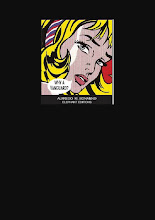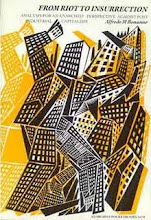From: ‘Dibattito sull’autogestione’, Movimento e progetto rivoluzionario,
Catania 1977, pp. 162-168.
1. The problem of self-management is not just the technical problem of how to ensure the functioning of production before, during and after the revolution. It is a more complex problem that involving the very dynamic of the revolutionary process. To study possible models of self-management without putting them in a revolutionary context means nothing at all as far as liberation is concerned.
To ask the meaning of self-management means to ask how a society entrusted into the hands of the producers would function. But at the same time it means asking if it is possible to self-manage the struggle at the present time, in the face of exploitation and genocide.
Self-management of the struggle comes first, followed by self-management of work and society.
If self-management is to serve State production, then we are against it. If it is to serve as an instrument for deceiving the workers yet again, we are against it. If it is to serve as an alibi for some party to come to power on the backs of the masses, we are also against it.
2. The exploited will bring about the revolution because they are trapped and suffer the progressive loss of every positive aspect of social life. The mass movement is developing on the deterioration of the economic, social and cultural conditions which rendered the preceding State administration possible. The work of stimulus and clarification which the revolutionary minority is carrying out is part of this contradictory structure, soliciting the autonomous strength that exists within the masses, pushing them to construct the rudiments of self-managed organisation which, starting off from the struggle, can extend to the formation of generalised self-management through the self-managed revolutionary event.
3. In the waning phase of consumerism world economic power tried to use the Yugoslavian type model of self-management on a large scale. Such a solution would have been of very great danger to the workers’ movement. If they had fallen into the trap they would have accepted the management of the places of production (only those most easily controllable, never the fundamental ones such as the banks, finance companies, railways or shipping lines), controlled by a bureaucratic political centre or in the hands of party leaders—technocrats in the service of a capitalism that has been rendered absolutely anonymous— or under some new kind of charismatic leader.
There would have been self-management in name alone. The workers, under the imperatives of a programming centre, would merely be self-managing their own exploitation. Strikes, for example, would be unthinkable when not specifically forbidden. This self-management would be equivalent to the militarisation of production.
4. In order to give themselves a perspective of self-management workers must first oppose themselves to the present structure of collaboration between the various elements involved in their exploitation. These are: a) the political parties, including those who define themselves ‘left-wing’ and consider themselves the carriers of the revolutionary tradition; b.) the unions, including those who refer to revolutionary syndicalist doctrines and to anarcho-syndicalism.
The presence of this triple alliance, bosses, parties and unions, is pushing workers to build the bases of their own autonomy and conquer the essential elements necessary for taking the first steps towards self-management. This does not so much mean an advance in the level of the struggle as a qualitative leap which is attempting to attack the anti-worker alliance brought about by the forces of reaction and their collaborators. It is the class situation in its complexity which is being put in question and examined in a new light. Workers’ autonomy is the first step towards self-management.
5. Another essential phase in the perspective of self-management is workers’ reappropriation of their creative capacity. The capitalist system, basing itself on the private ownership of the means of production, does not allow for the creative employment of those means by the worker. The activity of production is distorted and produces the phenomenon of alienation: production escapes the worker. His work is well and truly forced labour.
But the creative capacity of the working man or woman can only be recovered through the availability of the product, that is through a revolutionary process of reappropriation when a reactionary process of exploitation is in force. Revolution of work is therefore the self-managed organisation of these first elements of the future society, base production nuclei which grow from the autonomy of the struggle.
6. Information is a key element in the model of future exploitation. Moments of crisis in imperialist consumerism can be overcome by allowing co-management carried out while maintaining absolute control over information. Any form of counter-information, any deviation from the data supplied by the central direction would be carefully excluded. What is known as ‘preventive censure’ is a means of globalizing the process and of causing the fragmentation of the working class, thereby eliminating the nonproductive strata (controls, timekeepers, etc.), and reducing the importance of some of the intermediate strata (civil servants, etc.).
In this reactionary situation the element of struggle which fits in perfectly within the perspective of workers’ self- management is the conquest of information. The workers organise information themselves, from the base, taking over its elaboration and interpretation, refusing the participation of any intermediary whatsoever to act as a filter—in the first place, of course, the unions.
7. The project of self-management begins to take form through the essential points we have listed: a) workers’ autonomy, b.) recovery of the creative capacity, c) the conquest of information. It remains to be seen how this will come about, i.e. if by spontaneous germination within the workers’ movement due to the effect of certain structural changes, or by an intervention prepared by a precise minority.
In our opinion the action of an anarchist minority within the mass fits in very well with the perspective of self- management. This does mean the hypothesis of a ‘guide’ who, in any case would end up repeating social democracy’s programme. It means action within the workers’ movement itself, seeking to coordinate autonomous organisations in accordance with the interests of the workers, and aimed at safeguarding individual autonomy in the dimension of class autonomy.
8. The presence of an anarchist minority within the mass considers the problem of the choice of instruments in the struggle. We attack the interclassist and reformist parties, but not for this do we fall into a stale supporting of spontaneity. The points of reference are the workers’ interests which they must recognise as such. A change in structure, when based entirely on economic factors, does not necessarily mean an ‘automatic recognition’ of the latter. For example, a struggle for an increase in wages led by the unions is not always in the interests of the workers. It may be in their ‘apparent’ interests. On the contrary it may be in the ‘effective’ interests of their exploiters. Understanding this is the necessary foundation for the self-management of the struggle and therefore for the firm establishment of the prospect of self-management.
The choice of means for the struggle, for example direct action, sabotage, the destruction of work, carries a need for clarification and an identification of the ‘real interests’ of the working class. The need for this work cannot be denied by an unfounded voluntaristic view of the phenomenon.
Recognition of one’s own interests is the most important condition for the realisation of the social revolution.
9. Past forms of struggle such as cooperatives, factory councils, rank and file committees, sectorial committees, etc., that have been tried out in different historical situations and under other types production relations, must undergo severe analysis.
In substance, the limitations of these forms are demonstrated in the fact that capitalist society still exists. The workers must analyse with precision the negative effect which this alienating situation has on instruments which in themselves contain valid elements of cooperation and self-management. For example, cooperatives can only produce—as they are organised today—an autarchic and corporative spirit, a spirit which denies the class struggle and every sentiment of solidarity. Whoever thinks differently, and believes that from cooperatives can grow the seeds of a future society, mutual aid for the benefit of all, is illuding themselves in that they are attributing to capitalism not only a utilizable technological component, but also a psychological component of self-management which, in our opinion, does not exist.
10. The passage from the pre-revolutionary period to the revolution, and therefore to the construction of a new society, cannot come about in a sudden brusque way, unless care has been taken to construct the essential elements of a self-managed structure of the struggle. Self-management precedes the revolution, it is not a consequence of it.
If self-management were to be considered in its productive aspect alone, there would be a temptation to bring it about separately from the self-management of the struggle, resulting in the delegation of the struggle to a specific body (armed wing of the proletariat), to a specific party (workers’ party), or to a precise minority in government (democracy in general). Capitalism is extremely interested in this choice being made by the workers’ movement and it is exactly in this direction that it has been pushing it with all the means at its disposal, in particular by a massive use of the media. We must not fall into the trap.
By placing the organisation of the struggle alongside the organisation of production in the perspective of self-management, reactionary and capitalist forces are automatically expelled from the field of action of the workers’ movement. In fact, capital could never manage a struggle led by the workers autonomously, the instruments usually employed (parties and unions) would become useless in such a situation.
11. The revolutionary project is based on the existing relationship between producer and product. In this relationship other elements exist which affirm and modify it at the same time without transforming it radically. Clearly this relationship must be egalitarian, that is each according to his needs and from each according to his possibilities. It must be organised from the base, otherwise it will not be egalitarian. And it must be simple and elementary, that is it must spread to the abolition of the market mechanism which deforms needs as well as the economic aspect of production.
With self-management of the struggle organised from the base in small nuclei of workers at the level of production attacking the centres of exploitation, a movement of cohesion for a development of the conflict through the conquest of information could reach the definitive expropriation of capital, i.e. the revolution.
The self-management and independence of organisms of struggle means at the same time independence of the organisation of production. It is impossible to make a difference between the two.
12. The prospect of self-management must be built carefully today, avoiding all the errors inherent in a separation between self-management of the struggle and self-management of production. The first to be interested in this separation are precisely the capitalists. If self-management of the struggle is separated from its logical consequences (self-management of production) the conscious minority of the proletariat become tired and disheartened. It leaves them in a confrontation with no outlet and drives them to remain in the ‘comfortable’ perspective suggested by the parties and unions. Separating self-management of production from its logical premise (self-management of the struggle), another important result is obtained for capital—emptying self-management of its revolutionary meaning, increasing production and profits, safeguarding institutions, and having the working class once again in the hands of the parties and unions.
Unity of the workers in the autonomy of the struggle, unity in the perspective of self-management, unity in the process of revolution and production. These are, in our opinion, the essential points of a correct analysis of self-management.
skip to main |
skip to sidebar

Some writings of Alfredo Maria Bonanno in English, or almost

Alfredo Bonanno was arrested on October 1st 2009 in Greece, accused of concourse in robbery. With him, anarchist comrade Christos Stratigopoulos.
Here are a few translations and part translations of a small portion of Alfredo's writing. This is a work in progress, many of the translations are as yet incomplete. Open links to find more of Alfredo's work.
Alfredo Bonnano Released
Nov. 22 Alfredo Bonnano was sentenced to 4 years imprisonment (which practically means that with the time served so far and the fact that he is over 70years old HE IS RELEASED
Christos Stratigopoulos (who took responsibility for the action)
was sentenced to 8 years and 9 months with the Greek law will probably be released at the end 2011
BY ANY MEANS NECESSARY
LINKS
click on any of these labels to read text
- "Community" sickness
- 1981 - Editorial
- A Critique of Syndicalist Methods
- A few notes on Sacco and Vanzetti
- A few notes on the revolutionary movement in Italy
- A little man in Singapore
- A million jobs
- A question of class
- Affinity
- After Marx autonomy
- Albania Laboratory of Subversion (Introduction)
- Anarchism and the national liberation struggle
- Anarchists and action
- AND WE WILL ALWAYS BE READY TO STORM THE HEAVENS AGAIN (Against amnesty)
- ANTI-INSTITUTIONAL MOVEMENT
- Are we modern?
- Armed Joy
- ARMED STRUGGLE. SOME REFLECTIONS.
- Autonomous base nuclei
- beyond syndicalism
- Beyond workerism
- But what is the imaginary?
- Class War
- Comiso - Organizational document of the self-managed leagues
- Considerations on illegality
- Dissonances (Introduction)
- Elephant Editions 1986
- Excluded and included
- Farewell to claiming
- Feral Revolution (Introduction)
- FICTITIOUS MOVEMENT AND REAL MOVEMENT
- For an Antiauthoritarian Insurrectionist International - Proposal for a debate
- From riot to insurrection
- From the centre to the periphery
- Good technology
- Guerilla Extraordinary
- Habits and idols
- Hegel
- I know who killed chief superintendent Luigi Calabresi
- Illegality
- Illness and capital
- Informal organisation
- Insurrection
- Internationalism
- Introduction to Sabate
- Introduction to Anarchism and Violence
- Introduction to Bratach Dubh English edition of Malatesta's Fra Contadini
- Introduction to Insurrectionalist Anarchism
- Introduction to Strange Victories
- Introduction to The Conquest of Bread
- Involuntary aspects of voluntary work
- Let's destroy work
- LET'S DESTROY WORK. New introduction
- Let's keep our feet on the ground please
- Lightening Conductors and Stand-ins - more shots of non-news
- Lightning Conductors and Stand-ins
- Lightning Conductors and Stand-ins (cont.)
- Locked up
- Looking forward to self-management
- Loss of language
- More on internationalism
- National Liberation Struggle
- nineteen years on
- No more crises
- Non-news about drugs
- Non-news about racism
- Ode to the Uniform
- On Feminism
- One's life on the line
- Order and chaos
- Otto Ruhle (Introductory Note)
- OUR ROLE IN THE PRESENT CONFLICT
- Palestine mon amour
- Pantagruel anarchist review
- Pinelli
- Prison and Prisoners’ Struggles - Introduction
- Propulsive Utopia
- Quality and the factory
- Restructuring Capital and the new democracy
- Revolution - Violence - Antiauthoritarianism
- REVOLUTIONARY VIOLENCE
- Science and the social revolution
- Self-management
- Severino Di Giovanni in Argentina 1923-1931 by Osvaldo Bayer
- Social banditry
- SOME NOTES -
- Space and Capital
- Stirner
- Stop the City? From information to attack
- Strategy and Methods
- Streamlined production
- The "end" of the crisis
- The aesthetics of anarchism
- The anarchist tension
- The area of autonomy and the anarchist movement in Italy
- The armed wing of science
- The Cruise missile base at Comiso can be prevented
- The ethical bank
- The insurrectional project
- THE LANGUAGE OF TECNICS -
- The logic of insurrection
- The moral split
- THE NECESSARY DESTRUCTION -
- The priority of practice
- The refusal of arms
- The revolutionary project
- The revolutionary struggle
- The significance of an insignificant event
- The struggle for self-managed social space
- The tyranny of weakness
- The whole and the part
- The young in a post industrial society
- Theory and action
- Towards anarchist antimilitarism
- TOWARDS THE GENERALISATION OF ARMED STRUGGLE
- TRANSFORMATION IN THE WORLD OF WORK AND SCHOOL -
- TRUTH -
- Unemployment in Italy - How come everything doesn't explode?
- Untitled
- Violence and non-violence
- What are anarchists
- What can we do with anti-fascism?
- Why a vanguard?
- Why Insurrection
- World domination in a few words











